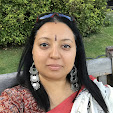http://www.nytimes.com/2007/03/01/world/middleeast/01cairo.html?ex=1173589200&en=1f6e16c2011f7368&ei=5070&emc=eta1
By MICHAEL SLACKMAN
Published: March 1, 2007
Cairo Journal
In Arab Hub, the Poor Are Left to Their Fate
CAIRO, Feb. 23 — Ali Mezar has spent his life fishing a narrow, muddy patch of the Nile in this, one of the most crowded cities in the world. But Mr. Mezar has little contact with urban civilization. He sleeps in his boat, makes tea from the dirty Nile water and on good days earns a few dollars.
Not far away, on the shoulder of a busy avenue, Karim Sayed, 21, herds sheep and goats matted with urban filth. He spends his days staring into oncoming traffic, hoping to make a sale before the police move him or confiscate a sheep.
At the city’s edge, in a packed neighborhood built entirely by its residents, Mina Fathy and his neighbors fix sewerage, water and electricity problems on their own because they say the government offers them virtually no service in such functions.
Cairo is home to 15 million and often described as the center of the Arab world, an incubator of culture and ideas. But it is also a collection of villages, a ruralized metropolis where people live by their wits and devices, cut off from the authorities, the law and often each other.
That social reality does not just speak to the quality and style of life for millions of Egyptians. It also plays a role in the nation’s style of governance.
The fisherman on the Nile, the shepherd in the road and residents of so-called informal communities say their experiences navigating city life have taught them the same lessons: the government is not there to better their lives; advancement is based on connections and bribes; the central authority is at best a benign force to be avoided.
“Everything is from God,” said Mr. Mezar, the fisherman, who was speaking practically, not theologically. “There is no such thing as government. The government is one thing, and we are something else. What am I going to get from the government?”
Cairo has been the capital of Egypt for more than 1,000 years, and sits where the dry sands of the desert lead to the fertile Nile Delta. Egyptian officials like to say that this is where modern bureaucracy was invented, where the mechanics of governance first took shape.
While the Egyptian government is the country’s largest employer, it is by all accounts an utterly unreliable source of help for the average citizen. That combination, social scientists say, helps create a system that has stifled political opposition and allowed a small group to remain in power for decades.
One brick in the foundation of single-party rule has been public resignation. There is no widespread expectation that the authorities will give the common man a voice, and so there is rarely any outrage when they do not. The fisherman, the shepherd and Mr. Fathy all said that the most they could hope for from the government was that it stay out of their lives.
“We hope God keeps the municipality away from us,” Mr. Sayed said as he sat in a wooden chair, surveying his fetid flock of goats and sheep with headlights streaming by.
Such a feeling of separation is one reason that the leadership has been able to clamp down on opposition political activities without incurring widespread public wrath, political analysts say.
“People see the government as something quite foreign or removed from their lives,” said Diane Singerman, a professor in government at American University in Washington who has written extensively about Cairo . “Commuters to the city, or poor peddlers and working people, do not see the government as particularly interested in their lives, and they also see politics as quite elite and risky and something to stay away from.”
Officials say part of the disillusionment comes from unrealistic expectations, a holdover from the heady days of Gamal Abdel Nasser, Egypt ’s leader from 1954 to 1970, when government jobs were deemed a right and cradle-to-grave care a promise.
Mr. Mezar and his cousin Muhammad Hassan fish the Nile just as their parents and their grandparents did, living in the bottom of their small wooden boats. Dark from the sun, hands callused from their oars, they are the image of Egypt , and they often smile and wave dutifully as tour boats motor up the river, with tourists snapping their pictures.
They dock their boats beneath a busy overpass, waking each morning at 6, filling their glasses with tea made from water scooped directly from the Nile . They worry that despite their fishing licenses, the police will demand their fish or write a ticket for some invented infraction.
“There is only despair,” Mr. Hassan said as he slowly rowed while his son, Rageb, 22, stood barefoot on the front of the boat putting out the net. “It is all about connections. If you know someone, you get 20 jobs. If not, you get nothing.”
He said they knew about bilharzia, the life-threatening parasite in the slow-moving waters on the edge of the Nile , but their priority is catching fish.
“We get checked for bilharzia,” he said.
“Really?” he was asked.
“No, never,” he replied, shaking his head.
There were four boats working the river one morning, including Mr. Hassan’s. The crews were all relatives of his. No one expressed anger — or depression. Only resignation.
“I am sick of Egypt ,” Mr. Mezar said. “I like fishing, but you see, are there any fish? I would give all of this if the government gave me a job.”
Cairo has grown like a living organism, swallowing up agricultural lands and villages as its population has ballooned. Nearly three-quarters of the population live like Mr. Fathy, in informal communities.
Mr. Fathy comes from Manshiet Nasser, a sprawling labyrinth of brick apartment buildings along trash-strewn dirt roads that is home to hundreds of thousands of people. Informal communities are not shantytowns, but neighborhoods that grew organically, without any urban planning. People simply built homes, some buying agricultural land, some squatting on desert land.
The nature of these communities has bred a sense of distance and alienation from the government, experts in Cairo ’s life say. The government only provided services when the neighborhoods reached a critical mass, when the numbers of people could no longer be ignored. Few have schools. Roads are so narrow that police trucks cannot enter. Electricity is pirated. Order is established by the community, independent from the authorities.
“My impression is that they think they are something different from the rest of the city,” said Abdel Halim Ibrahim Abdel Halim, an urban planner and architect. “They feel like they provided housing for themselves, they control that housing.”
Residents of Manshiet Nasser, which is on a plateau, often refer to those in the formal center of the city as “people who come from under,” as Salah Ibrahim, 40, meant when he said, “People who come from under never listen to us.” He said a road in front of his house had been flooded with sewage for days until, finally, the neighbors all donated money to have it repaired.
“Every house is on its own,” said Mr. Fathy, who said he had paid a bribe of 2,000 pounds, about $350, when inspectors insisted that he tear down the third-floor apartment he was building on top of his parents’ building. “Every house has to solve its own problems.”
MICHAEL SLACKMAN is Cairo Bureau chief of New York Times



























1 comment:
Just for your information, when there is a line at the bottom of the story that says someone contributed to the story, it doesn't mean that the person who wrote the story did not do reporting, too.
Post a Comment